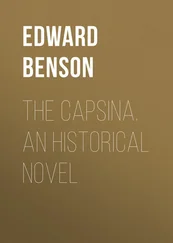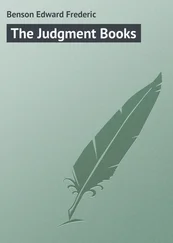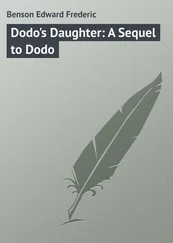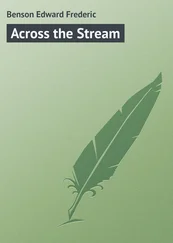Edward Benson - The Angel of Pain
Здесь есть возможность читать онлайн «Edward Benson - The Angel of Pain» — ознакомительный отрывок электронной книги совершенно бесплатно, а после прочтения отрывка купить полную версию. В некоторых случаях можно слушать аудио, скачать через торрент в формате fb2 и присутствует краткое содержание. Жанр: foreign_prose, на английском языке. Описание произведения, (предисловие) а так же отзывы посетителей доступны на портале библиотеки ЛибКат.
- Название:The Angel of Pain
- Автор:
- Жанр:
- Год:неизвестен
- ISBN:нет данных
- Рейтинг книги:5 / 5. Голосов: 1
-
Избранное:Добавить в избранное
- Отзывы:
-
Ваша оценка:
- 100
- 1
- 2
- 3
- 4
- 5
The Angel of Pain: краткое содержание, описание и аннотация
Предлагаем к чтению аннотацию, описание, краткое содержание или предисловие (зависит от того, что написал сам автор книги «The Angel of Pain»). Если вы не нашли необходимую информацию о книге — напишите в комментариях, мы постараемся отыскать её.
The Angel of Pain — читать онлайн ознакомительный отрывок
Ниже представлен текст книги, разбитый по страницам. Система сохранения места последней прочитанной страницы, позволяет с удобством читать онлайн бесплатно книгу «The Angel of Pain», без необходимости каждый раз заново искать на чём Вы остановились. Поставьте закладку, и сможете в любой момент перейти на страницу, на которой закончили чтение.
Интервал:
Закладка:
Madge looked at his thick black thatch.
“You seem to have got some left,” she remarked.
“Yes, but I’m looking thinner. Mrs. Home told me so. Oh, look at the moon! What a dreadful thing to say, too! But it really is out of drawing – it is far too big!”
“Perhaps we are far too small,” said she.
Evelyn shook his head.
“It is impossible to be small if that occurs to you,” he said.
They walked in silence after this for a dozen yards or so, Madge feeling, somehow, strangely attracted by her companion. There was nothing, it is true, particularly brilliant about his conversation; it was boyish rather than brilliant; but she felt, as most people did, that she was in the presence of a personality that was rather unusual. And this personality seemed to her to be very faithfully expressed in his pictures; there was something daringly simple about both him and them. He evidently said whatever came into his head, and her experience was that so many people only talked about such things as were supposed to be of interest. Also, in spite of this moonlight solitude, he evinced not the smallest tendency to notice the fact that she was a very good-looking girl; no hint of it appeared in his talk or his attitude to her. There was not the very slightest suspicion of that even in his desire to go on the river with her. That ridiculous suggestion she felt, with unerring instinct, had been made simply from comrade to comrade; there were two of them together, cut out from a table of bridge, and he had proposed it just as he might have proposed it to a man, instead of a girl, of his own age. And to Madge this was something of an exception in her experience of the other sex, for most unmarried men of her acquaintance had shown a tendency towards tenderness. Her beauty made it perhaps excusable in them, but she found it rather trying. It was a relief, at any rate, to find a young man who took her frankly, who could say “Look at the moon,” only to point out that it was out of drawing. For in the matter of emotion Madge was strangely unfeeling, or, at any rate, strangely undeveloped; and if her mother had let any anxiety dwell upon her hard and polished mind, the doubts about Madge’s future would, perhaps, have pressed as heavily there as any. As a good mother should, she had brought to her daughter’s notice, not to say thrown at her head, a large variety of young men, to none of whom had Madge responded at all satisfactorily. And it was almost intensely pleasing to her at this moment to find someone matrimonially quite impossible to her mother’s mind, who was both so attractive to her personally, and who did not show the smallest desire to treat her otherwise than a man should treat a man. He was perfectly natural, in fact, perfectly simple, and quite an exception to her experience of moonlight walkers. And this paragon continued his peerless way.
“Have you met Tom Merivale before?” he asked. “No? Of course he would think it almost profane to say the moon was too large. He takes any fact in nature and then proceeds to fit himself to it. Whatever untutored nature does is right, in his view. I wonder what he would make of slugs eating the faces of pansies slowly away. I shall ask him.”
Madge gave a little shriek of horror.
“That is one of the facts of life which I can’t get over,” she said. “I can’t reconcile myself to wanton destruction of beauty. Oh, there is so little in the world.”
Now, there is a particular mental sensation which corresponds to the physical sensation of stepping up a step when there is no step there. Evelyn felt this now.
She had gone suddenly into vacancy, with a thump.
“What do you mean?” he said. “I should have thought there was so much there that one was bewildered. Surely almost everything is beautiful.”
“Do you really think that?” she asked.
“Why, of course. But the trouble is that one has not wits enough to see it. And all beauty is equal – woman, man, mountain-side, pansy. And probably slug,” he added. “But to appreciate that would require a great deal of insight. But Sir John Lubbock says that earwigs are excellent mothers. That opened my eyes to earwigs.”
Again Madge walked on in silence for a space.
“Are you ever bored?” she asked at length.
“Bored? No. All that anyone has ever made is at one’s disposal to wonder at. And if one can’t do that, one can go and make something oneself. No, I hope I shall have the grace to commit suicide before I am bored.”
Madge stopped and turned to him. That she was being unwise she knew, but something intimate and indwelling dictated to her.
“I am bored every day of my life!” she said. “And how can I avoid it? Is it very stupid of me?”
Evelyn did not hesitate in his reply.
“Yes, very!” he said. “Because it is such a waste of time to be bored. People don’t recollect that.”
They had come opposite the drawing-room window, and as they passed Lady Ellington stepped out on to the terrace.
“Is that you, Madge?” she asked.
Even in the darkness Evelyn knew what had happened to Madge’s face. The fall of it was reflected in her voice.
“Yes; have you finished your bridge?” she asked.
“We are waiting for Mr. – Mr. Dundas to cut in,” she said. “Mr. Home thought he was in the smoking-room, and has gone there.”
“Oh, I am not in the smoking-room,” said Evelyn.
If one judged by definitions given in dictionaries it would probably be a misuse of language to say that Lady Ellington “played” bridge. Cards were dealt her, and she dealt with them, embarking on commercial transactions. She assessed the value of her hand with far more accuracy than she had ever brought to play on the assessment of her income-tax, and proceeded to deal with her assets with even more acuteness than she was accustomed to dispose on the expenditure of her income. Mrs. Home had silently entreated Philip to allow her to cut out, and Lady Ellington was left to play with three men. This she always enjoyed, because she took full advantage of the slight concessions which were allowed to her sex if no other woman was of the table. But before embarking on the second rubber she turned to Madge.
“I want to speak to you, dearest,” she said, “before you go to bed. We shall only play a couple more rubbers. Mr. Home, you really ought to have pneumatic cards; they are a little more expensive, but last so much longer – yes, two more rubbers – I go no trumps – and I will come to your room on my way up. No doubling? Thank you, partner; that is the suit I wanted.”
Philip, who was her partner, had exposed two excellent suits, so the imagination of the others might run riot over which particular suit was the desire of Lady Ellington. At any rate she scored a little slam, but was not satisfied, and turned on Evelyn, who, it is idle to remark, had talked during the play.
“I missed a nine,” she said. “Mr. Dundas was saying something very amusing.”
But as her face had been like flint, Mr. Dundas had to draw the inference that, however amusing, she had not been amused.
Lady Ellington always kept the score herself, and never showed any signs of moving, if she had won, until accounts had been adjusted and paid. To-night affairs had gone prosperously for her; she was gracious in her “good-nights,” and even commended the admirable temperature of the hot water, a glass of which she always sipped before going to bed. Madge had gone upstairs, but not long before; and her mother, having locked her winnings into her dressing-case, came to her room and found her sitting by the open window, still not yet preparing to go to bed.
“Do I understand that you walked on the terrace alone with Mr. Dundas?” she asked in a peculiarly chilly voice.
Читать дальшеИнтервал:
Закладка:
Похожие книги на «The Angel of Pain»
Представляем Вашему вниманию похожие книги на «The Angel of Pain» списком для выбора. Мы отобрали схожую по названию и смыслу литературу в надежде предоставить читателям больше вариантов отыскать новые, интересные, ещё непрочитанные произведения.
Обсуждение, отзывы о книге «The Angel of Pain» и просто собственные мнения читателей. Оставьте ваши комментарии, напишите, что Вы думаете о произведении, его смысле или главных героях. Укажите что конкретно понравилось, а что нет, и почему Вы так считаете.











